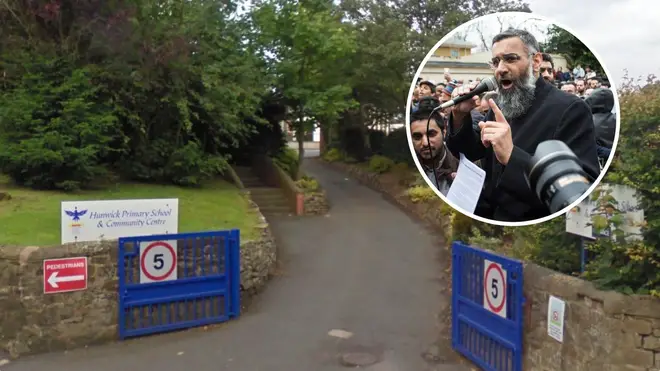
Ian Payne 4am - 7am
10 January 2022, 11:27

A primary school teacher who sent thousands of pounds to people and groups linked to terrorism has been banned from the classroom.
Miriam Sebbagh sent money to a person connected to Al-Muhajiroun (ALM) – of which Anjem Choudary was among the prominent members - and an individual who was thought to have left the UK to join Isis.
She also sent extremist videos which promoted violent jihad.
The 52-year-old, who worked at Hunwick primary school in Crook, County Durham, has now been banned from teaching "indefinitely" by the Teaching Regulation Agency (TRA).
Sebbagh was arrested by Counter Terrorism Policing North East (CTPNE) in July 2017 but the Crown Prosecution Service thought there was "insufficient evidence" to charge her.
CTPNE continued to have a "high level of concern" about Sebbagh's state of mind, opinion and her actions as a teacher, and said the TRA should review her conduct.
Read more: Man who wore t-shirts with terror group logos on given suspended jail term

Has Covid caused more online terror concerns?
The panel was told she had "strongly-held views" that violent jihad was the "correct interpretation of Islamic teaching".
The panel heard she liked Facebook pages of people who were linked to Isis, extremist views and hate speech, and tried to radicalise a friend.
She was found to have made five payments worth £2,500 to the person who was linked to ALM.
A witness told the TRA panel in a statement: "Ms Sebbagh initially came to the attention of CTPNE following receipt of financial intelligence, which indicated that she had made several payments to an individual linked to Al-Muhajiroun, which is a proscribed terrorist organisation."
Another seven payments worth £1,310 were sent between January and July 2016 to a person who is thought to have joined Isis.
A £100 payment was also sent to someone who is thought to have married a suspected ALM member. An unsuccessful payment was attempted in 2015 to a person arrested over terror offences, the panel heard on December 21.
Officers also found £4,670 in a safe at her home in 2018, which they said was meant to fund terror attacks.
Sebbagh had to forfeit the money and pay costs of £12,654. In a police interview in May 2018, she said she often donated to good causes, including Muslim charities, but denied making payments to people connected with terror.
But a witness statement, sent to the panel, said: "Despite Ms Sebbagh's assertion that the payments she had made were charitable in nature, the only 'charitable' aspects of those payments were to support fellow extremists whilst under criminal investigation for terrorist-related offences and/or to fund travel to join Isis or others who espouse hate."
Sebbagh also sent four "extreme and concerning" videos, one of which would be considered a criminal offence, the panel heard.
The "seriousness of the allegations found proved against her" led to her teaching ban, a report said. Sebbagh did not attend the hearing.